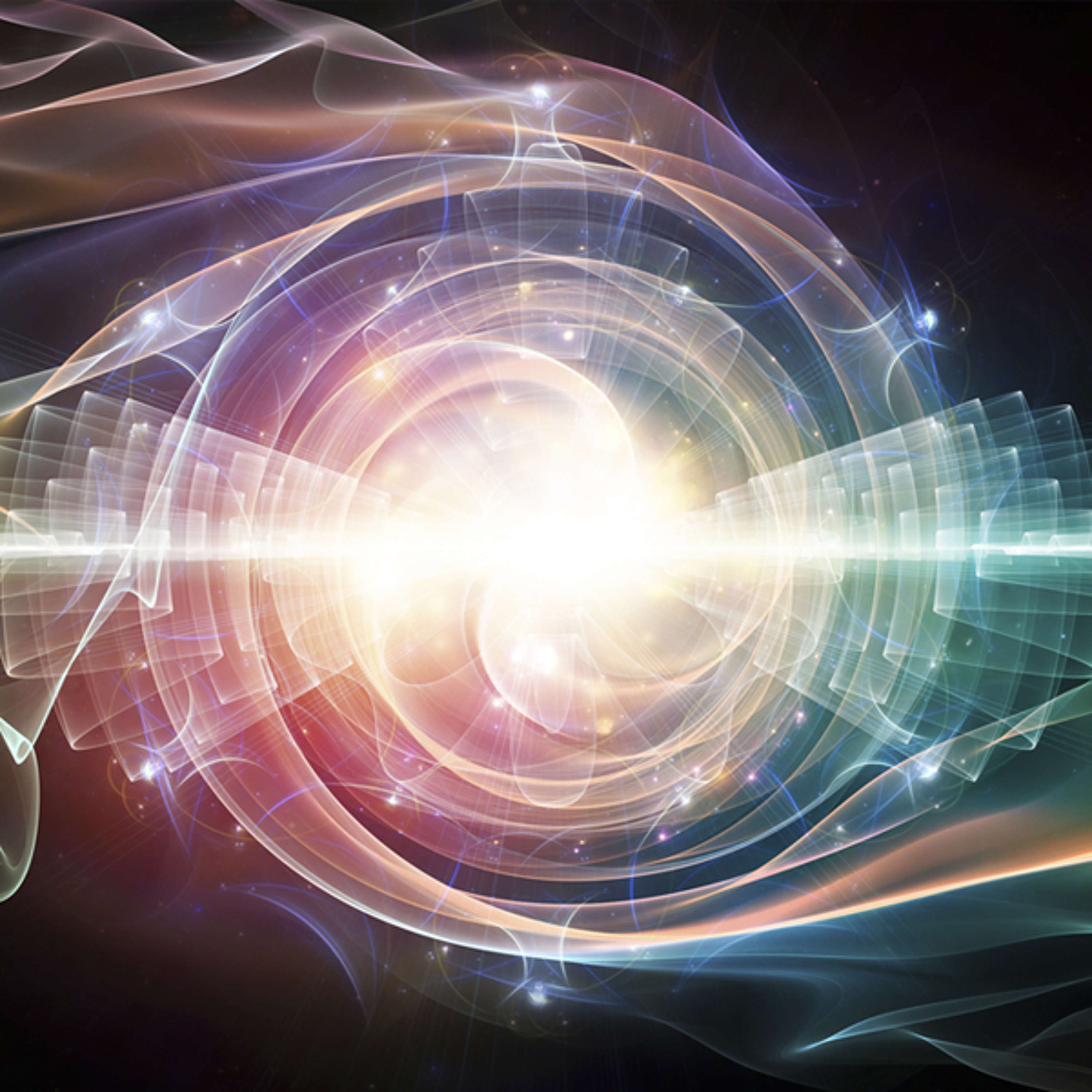
Does Quantum Physics Prove God? (Ken Wilber and Corey deVos)
Everyone Is Right
Shownotes Transcript
This conversation sheds clarity on a very confused notion in the area of spirituality today—namely, the “tao of physics” and all its variations, as exemplified by the recent film What the Bleep. So what relationship, if any, does God actually have with quantum physics?
Does quantum physics prove God? This question has to do directly with the relation of modern quantum physics and spirituality. In effect, does modern physics prove God? Does the Tao find proof in quantum realities?
Ken Wilber’s answer: “Categorically not. I don’t know more confusion in the last thirty years than has come from quantum physics….”
Ken goes on to outline the three major confusions that have dominated the popular (mis)understanding of the relationship of physics and mysticism.
#1: Your consciousness does not create electrons. Unlike Newtonian physics, which can predict the location of large objects moving at slow speeds, quantum physics only offers a probability wave in which a given particle, like an electron, should show up. But here’s the funny thing: it is only at the moment that one makes the measurement that the electron actually does “show up.” Certain writers and theorists have thus suggested that human intentionality actually creates reality on a quantum level. The most popular version of this idea can be found in the movie What the Bleep Do We Know?!, in which we “qwaff” reality into existence.
#2: Quantum vacuum potentials are not unmanifest Spirit. The immediate problem with the notion that certain “unmanifest” or “vacuum” quantum realities give rise to the manifest world, and that the quantum vacuum is Spirit, is that it immediately presupposes a radically divided Spirit or Ultimate. There is Spirit “over here,” manifestation “over there,” and it’s only through these quantum vacuum potentials that Spirit actualizes manifestation—with Spirit set apart from manifestation.
“In terms of actual real physics or actual real mysticism, they were incorrect on both counts. And the marriage of bad physics and sloppy mysticism has been a nightmare….”As the great contemplative traditions agree, true nondual Spirit is the suchness, emptiness, or isness of all manifestation, and as such leaves everything exactly where it finds it. Nondual Spirit is no more set apart from manifestation than the wetness of the ocean is set apart from waves. Wetness is the suchness or isness of all waves. By identifying Spirit with quantum potential, you are actually qualifying the Unqualifiable, giving it characteristics—”and right there,” Ken says, “things start to go horribly wrong, and they never recover. These folks are trying to give characteristics to Emptiness. They therefore make it dualistic. And then things get worse from there….”
#3: Just because you understand quantum mechanics doesn’t mean you’re enlightened. Physics is an explicitly 3rd-person approach to reality, whereas meditative, contemplative, or mystical disciplines are explicitly 1st-person approaches to reality. Neither perspective is more real than the other, but each perspective does disclose different truths, and you cannot use the truth disclosed in one domain to “colonize” another. The study of physics, as a 3rd-person discipline, will not get you enlightenment; and meditation, as a 1st-person discipline, will not disclose the location of an asteroid (or an electron). The “content” of enlightenment is the realization of that which is timeless, formless, and eternally unchanging. The content of physics is the understanding of the movement of form within time, i.e. that which is constantly changing. And if you hook Buddha’s enlightenment to a theory of physics that gets disproved tomorrow, does that mean Buddha loses his enlightenment?
